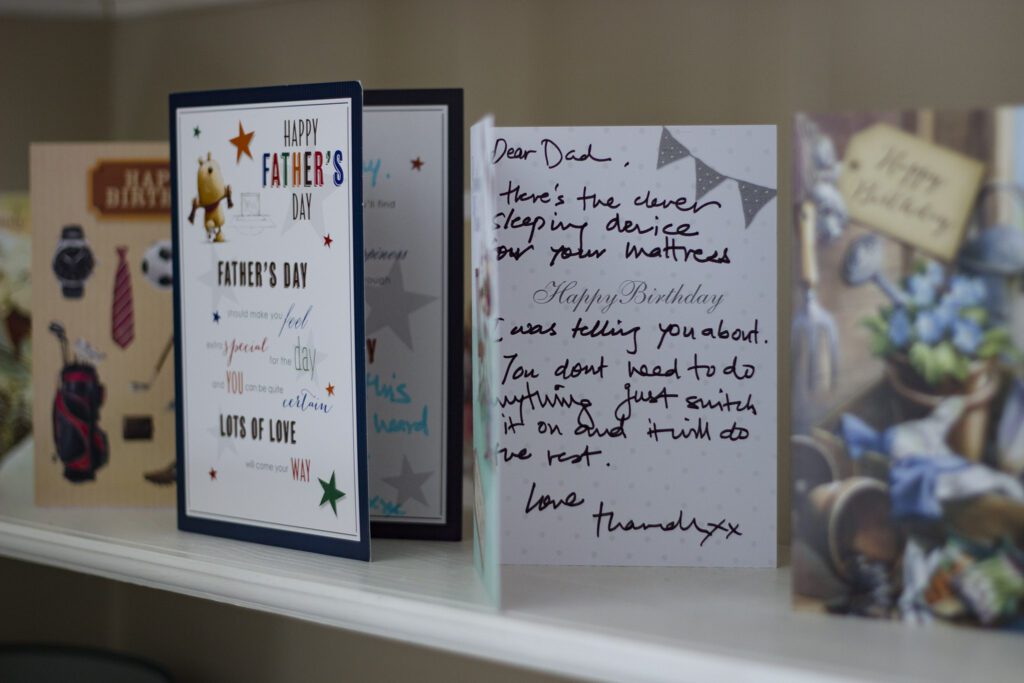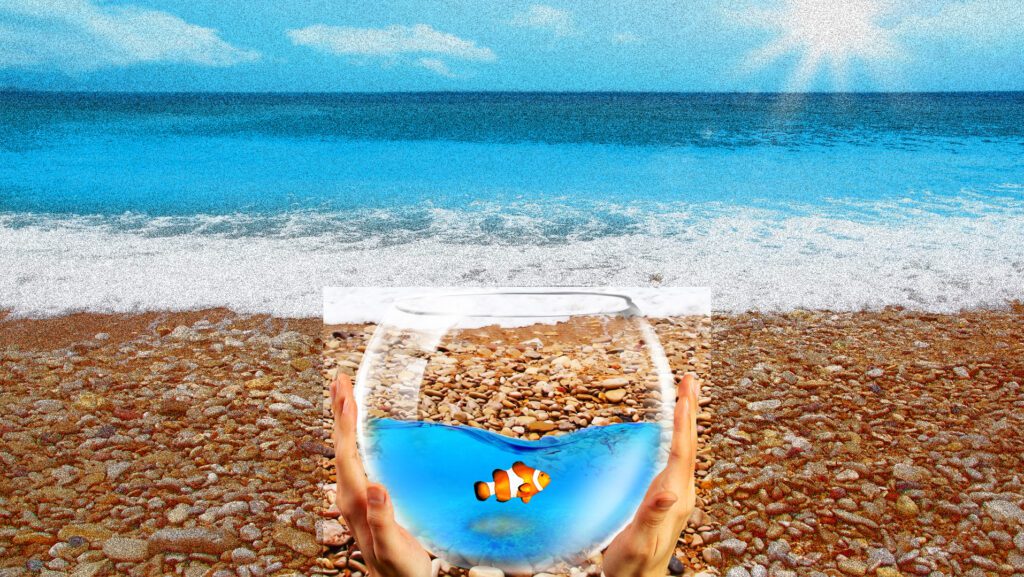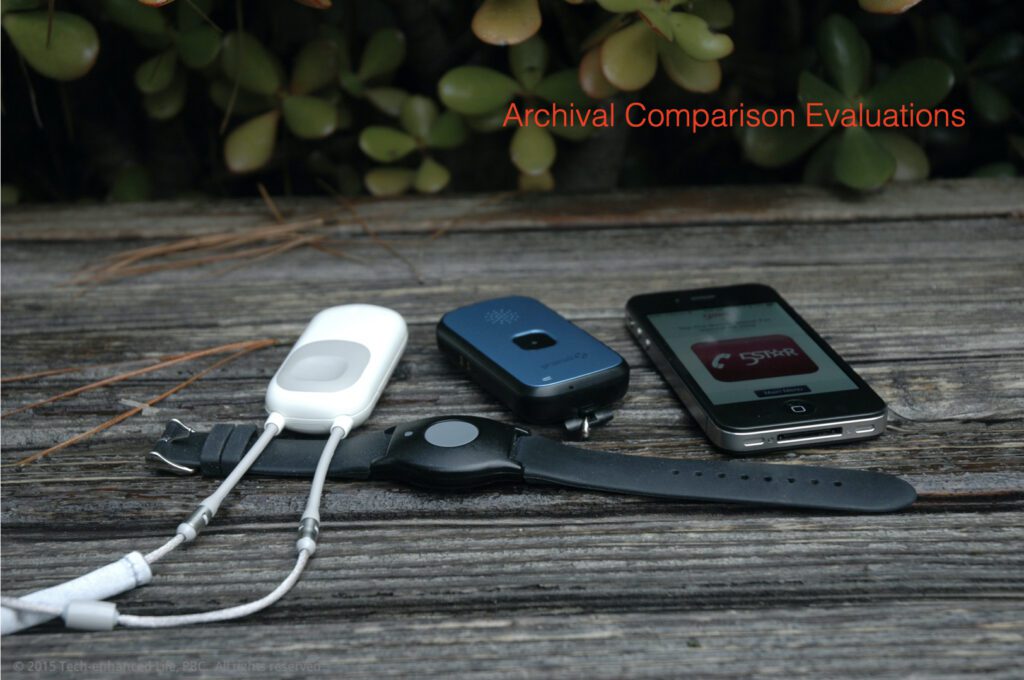 Richard Caro
Richard Caro
My Articles on Tech-enhanced Life
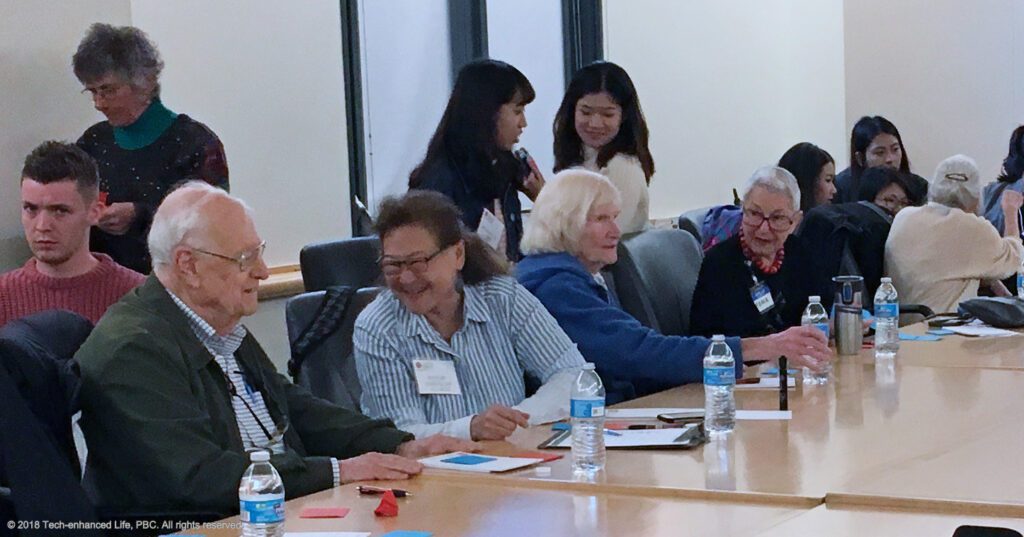
Intergenerational Design Opinions
What happens when you bring together a group of older adult Longevity Explorers and the teams participating in the Stanford Longevity Design Challenge? You get some interesting and contrasting opinions about what the differences should be between designing for a 25 year old and designing for an 85 year old.
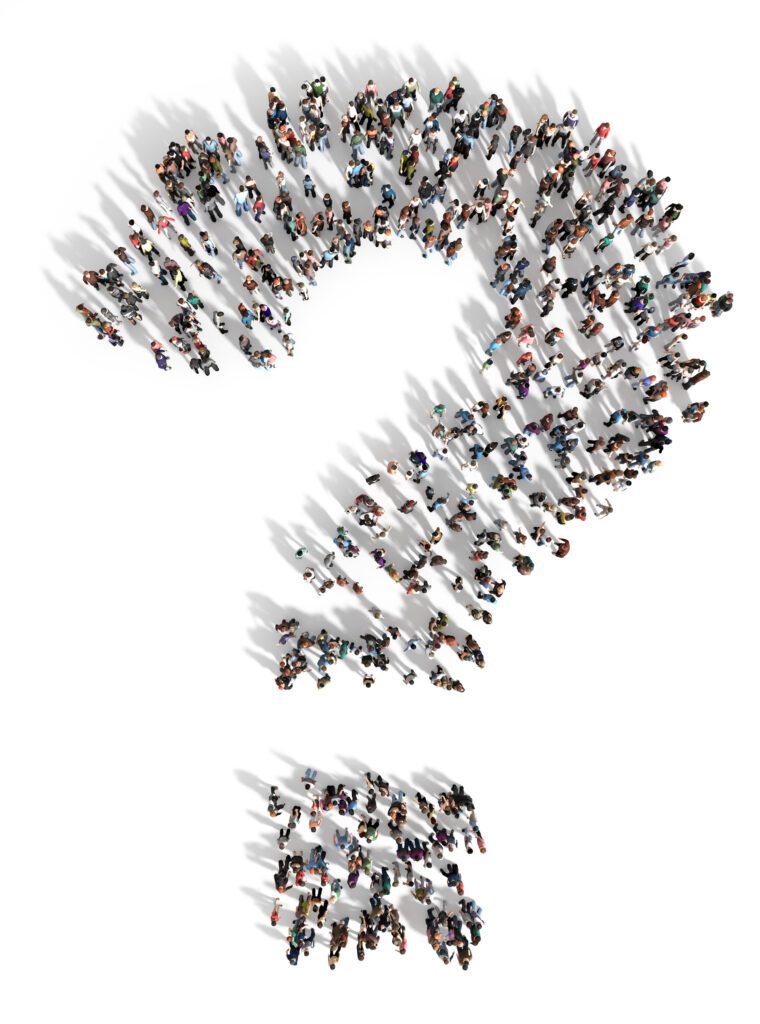
Which Customer Interaction, When?
When the conversation turns to interacting with customers before a product is “finished”, most product developers I’ve talked to are enthusiastic. But they have very different opinions about when to interact with customers, how to interact with them, and for what purpose. I believe there is a way of thinking that helps resolve these questions, depending on the details of the company, and the stage of product development they are at. This article is to share it.
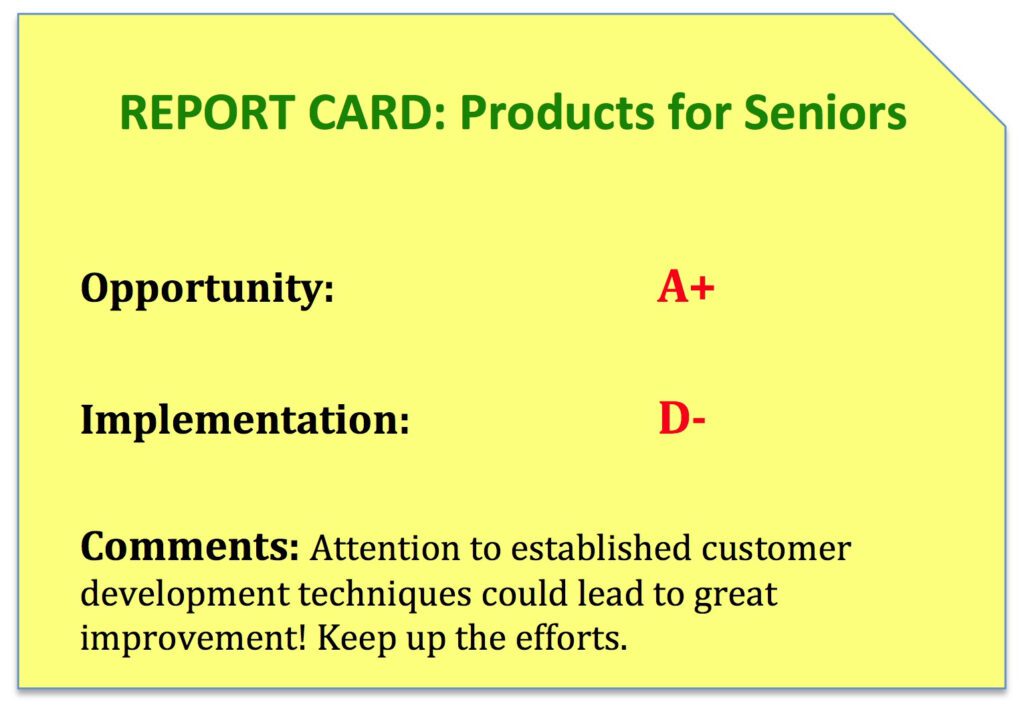
Products for Seniors: Could Do Better
After several years of product evaluations and unmet need explorations with groups of older adults, this is my most striking take-away. “While there is no shortage of problems for which older adults would like solutions, the vast majority of products we have looked at are either hard for elderly people to use, or do poorly the “job” our older adult demographic wants to get done”. This article is about why (in my opinion) this is the case, and about errors to avoid.
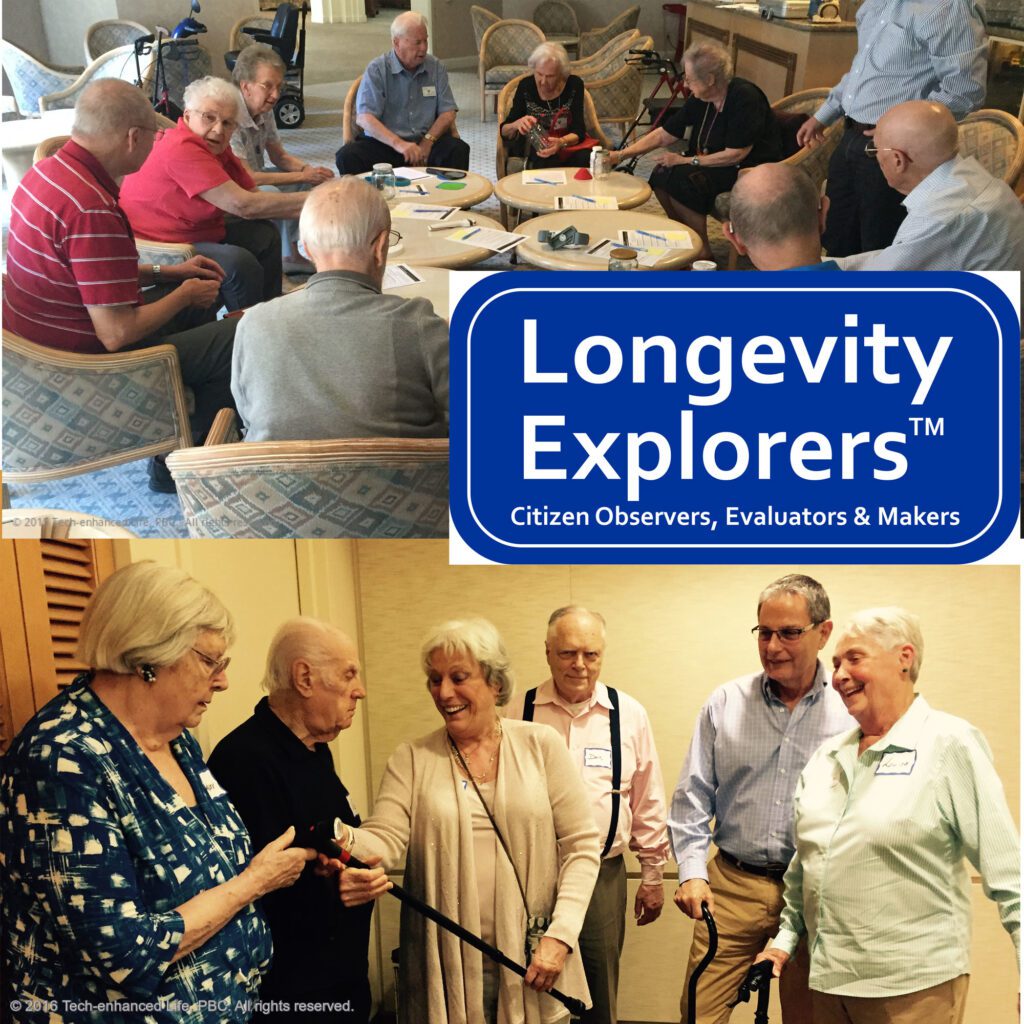
Longevity Explorers Roll up their Sleeves
In our first 24 months, our 5 circles of older adults (Longevity Explorers) had more than 100 face-to-face circle meetings at which together we explored unmet needs related to growing older; tried out, critiqued and compared various interesting products; and engaged in brainstorming and ideation for new and better products to help improve the quality of life as we age.
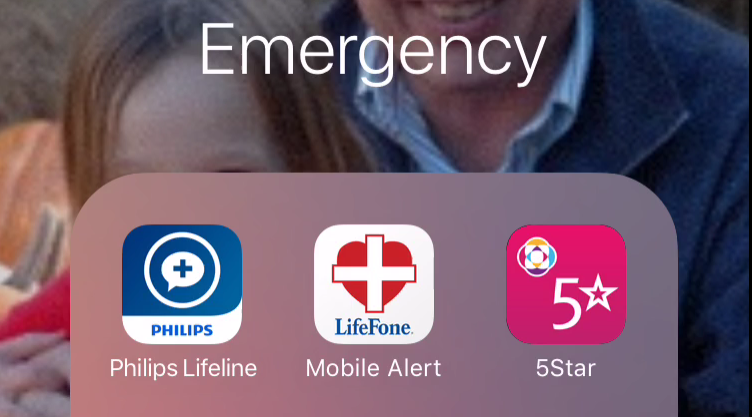
Best Medical Alert App: Bake-off
We set out to find the best medical alert app for our Longevity Explorers who wanted to use their smartphone as a medical alert system. We focused on monitored medical alerts, found only three that looked promising enough to test, and did extensive, hands-on, comparison testing. One App emerged as far superior to the others.
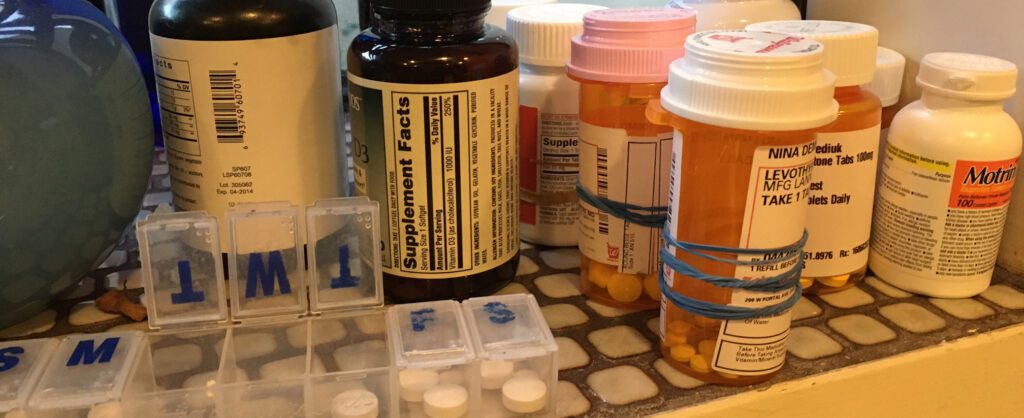
Technology for Managing Medication in Dementia
Watch this talk on technology for medication management by Dr Caro and Dr Renfro. It covers different available technologies to help minimize medication errors, especially for Alzheimer’s sufferers. It also covers some “unmet needs and opportunities” relating to medication adherence.
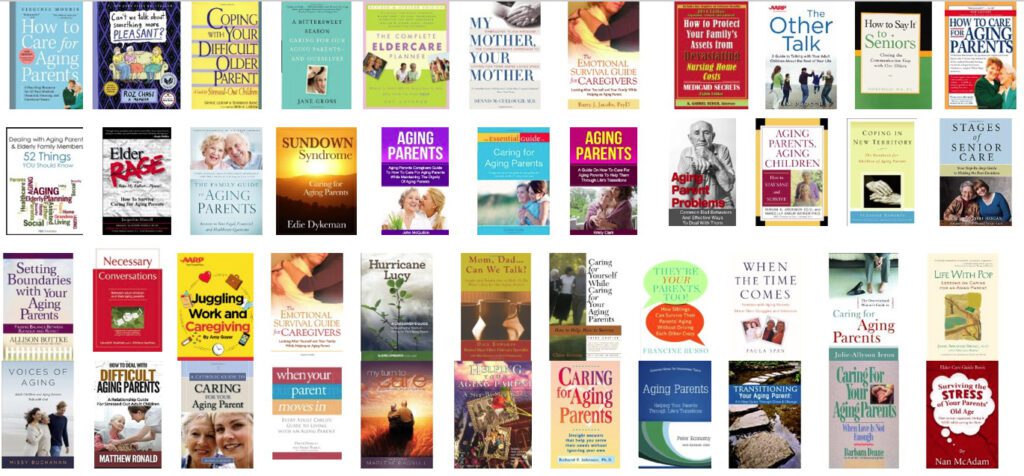
Caring for & Dealing with Elderly Parents: The Books
In a previous article I did a little research to find the 10 “best selling” books on the topic of Aging Parents (on Amazon). I have now waded through them all, and in this article I summarize my impressions of the different books, in the hope that you can leverage my work so you need only focus on the ones that seem most useful for you.
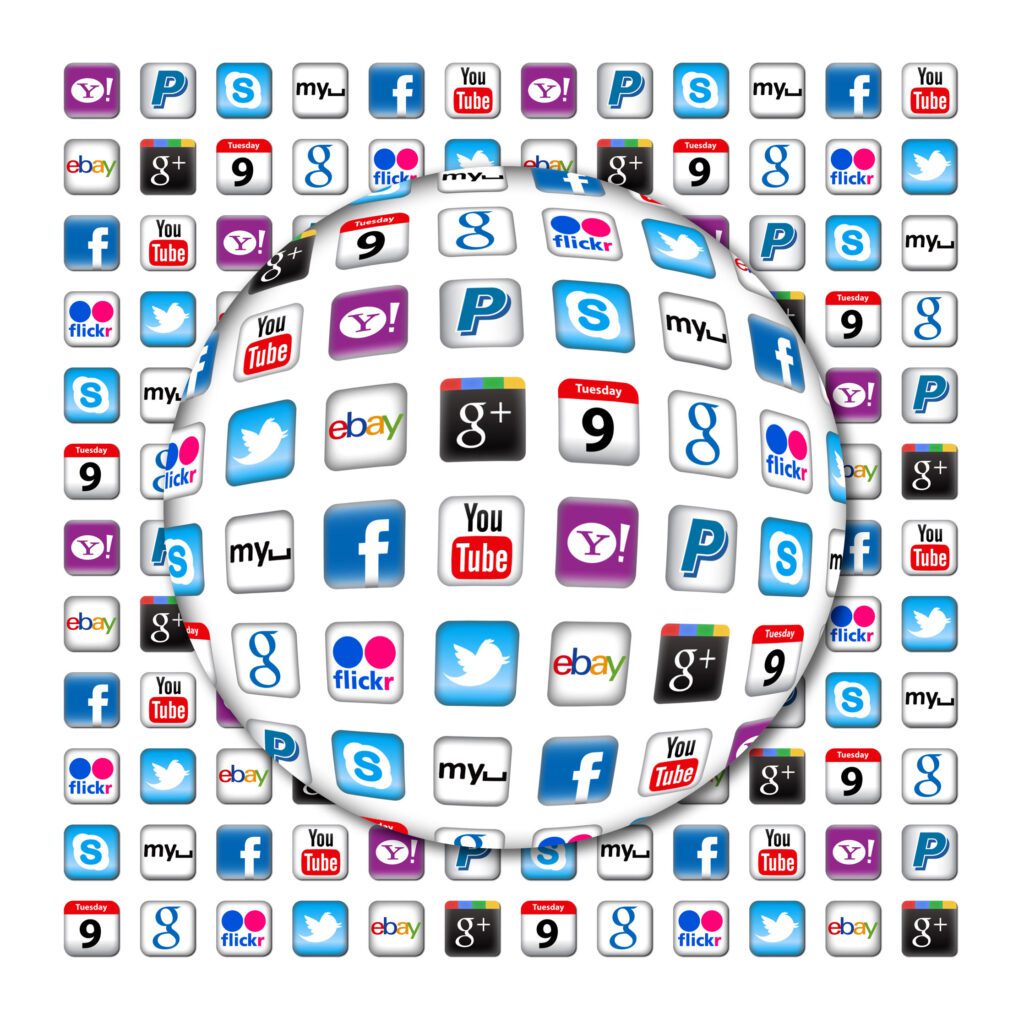
Ideas for Apps for Seniors
At a conference organized by San Francisco’s Institute on Aging, I ran an interactive “exploration”, in which we asked attendees to vote on “Senior Apps they Like“, or to submit ideas they have for “There should be an App for that“. We got quite a few interesting ideas, and this article reports the results of the session.
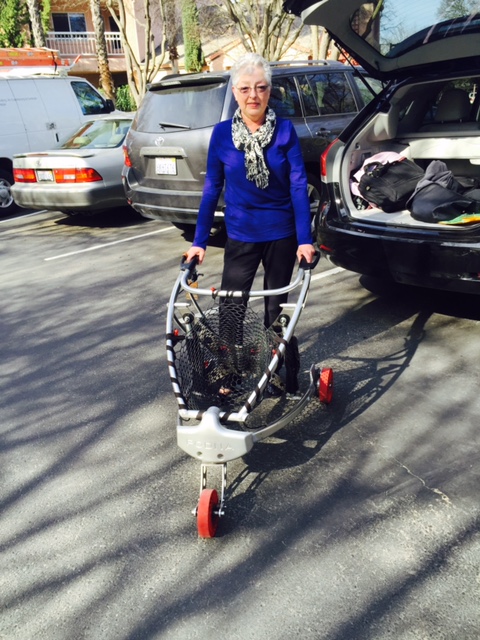
Inventor Road Trip
Earlier this month we invited the inventor of a new type of walker to come along to one of the Longevity Collective circle meetings and show the older adults members of our circle the prototype of her invention and get their feedback. It was pretty interesting. This article is about the experience.
My Background:
Dr. Richard G. Caro has 30+ years of experience at the intersection of technology and business — as startup CEO; startup CTO; scientist / inventor; angel investor; and advisor to emerging growth companies.
Dr. Caro is Co-founder of Tech-enhanced Life, PBC — a social venture which, together with a virtual community of older adults (the Longevity Explorers), is exploring the intersection of aging and technology and seeking ways to leverage technology to enhance quality of life as people age. He is also CEO of TangibleFuture, Inc., an advisory services firm which he founded in 2004 to help innovators turn advances in science and technology into successful businesses.
From 1986 to 1999 Richard held operational roles in high tech companies in Silicon Valley and Boston. He was CEO (founder) of Vital Insite, a venture-backed, medical device start-up, developing noninvasive monitoring products; Engineering Program Manager at Coherent, one of the world’s largest laser manufacturers; and CTO (employee #5) of Summit Technology, a pioneer in the laser refractive surgery (LASIK) business. Before entering industry, he was a member of the research staff at Stanford University.
Immediately prior to founding TangibleFuture, Richard was Managing Director at RHK, a provider of advisory services to the communications industry, where he led consulting engagements with multinational businesses such as Intel, and Carl Zeiss; research institutions such as Battelle, and Sarnoff Corporation; and a variety of emerging startup companies.
Dr. Caro has particular expertise in the process of transforming technical innovation into profitable businesses. He has been a mentor in business plan competitions at UC Berkeley, University of San Francisco, and the Cleantech Open; was a member of the “Entrepreneur in Readiness” program at Lawrence Livermore National Laboratory from 2008 to 2012; and in 2013 & 2015 was a mentor in Steve Blank’s course at UCSF: Lean Launchpad for Life Sciences & Healthcare. In 2017 he was the industry expert on a startup team that was selected for, and graduated from, the NIH I-Corps program.
Dr. Caro has been responsible for the development of a number of successful products; and has 24 issued patents. For many years he has been an “occasional” Silicon Valley angel investor. He has deep domain expertise in the fields of agetech; medical devices / healthcare; digital health; telecom; and photonics.
Born and raised in Australia, Richard received a B.Sc. (Hons.) degree from Melbourne University, Australia (1977), and a D.Phil. in experimental physics from Oxford University (1982) — where he was a Rhodes Scholar. In 1982 he was awarded an IBM post-doctoral fellowship to work at Stanford University, and moved to the USA where he has lived ever since.
